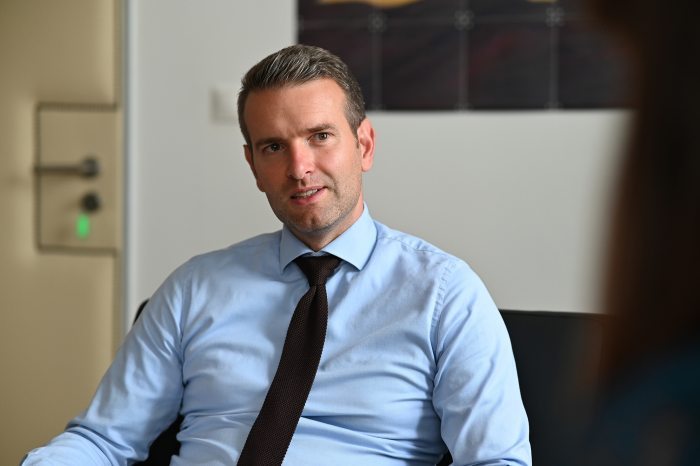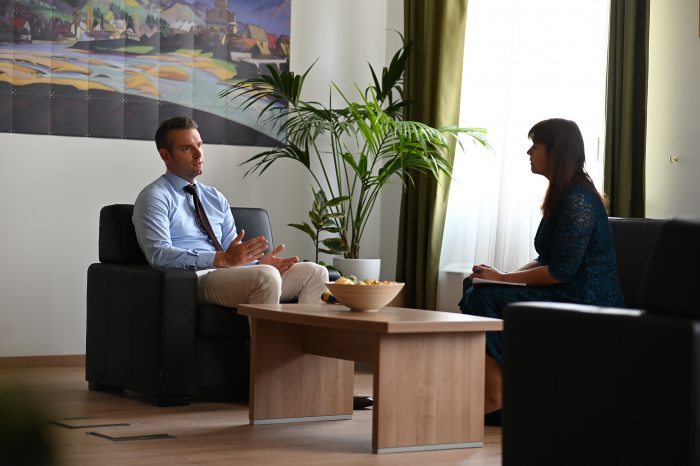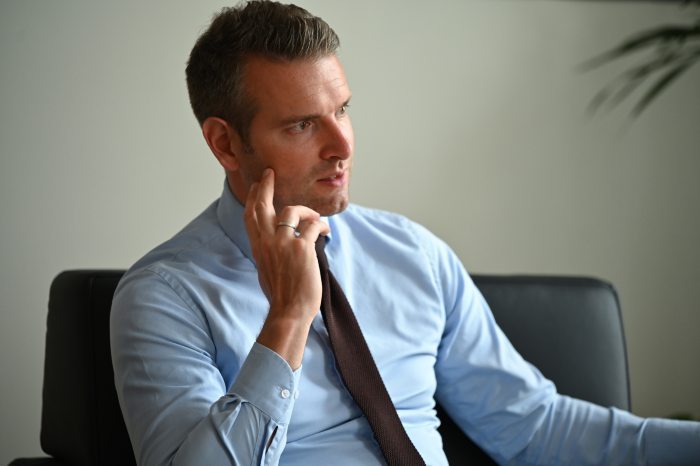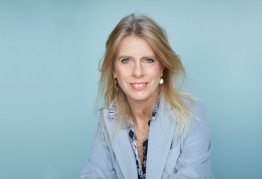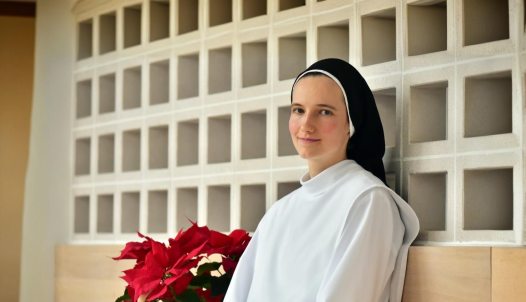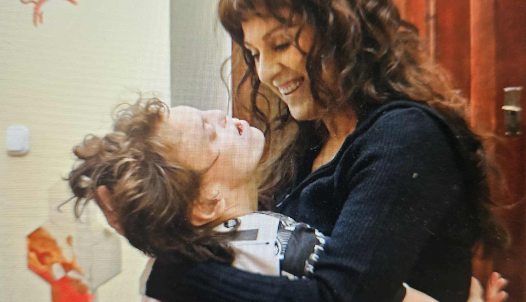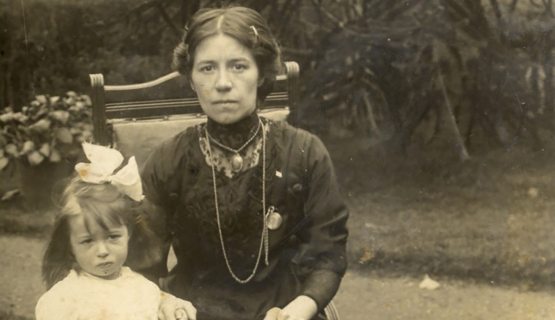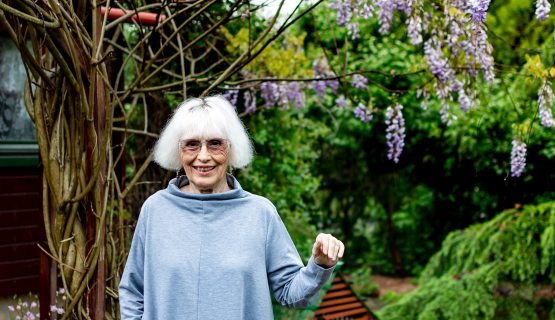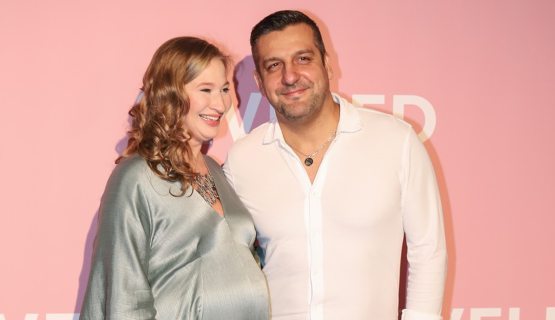"It is often the children who convince parents to go green" – an interview with State Secretary Attila Steiner
Even those who used to bury their heads in the sand are starting to feel the effects of climate change. Forest fires, flash floods and extreme weather conditions in Europe are making it clear to everyone that a change of attitude is needed. Attila Steiner, State Secretary for Circular Economy Development, Energy and Climate Policy at the Ministry of Innovation and Technology, is playing a major role in the development and implementation of the Hungarian Green Strategy. And as a father of three, he is particularly keen to make green solutions part of everyday life.
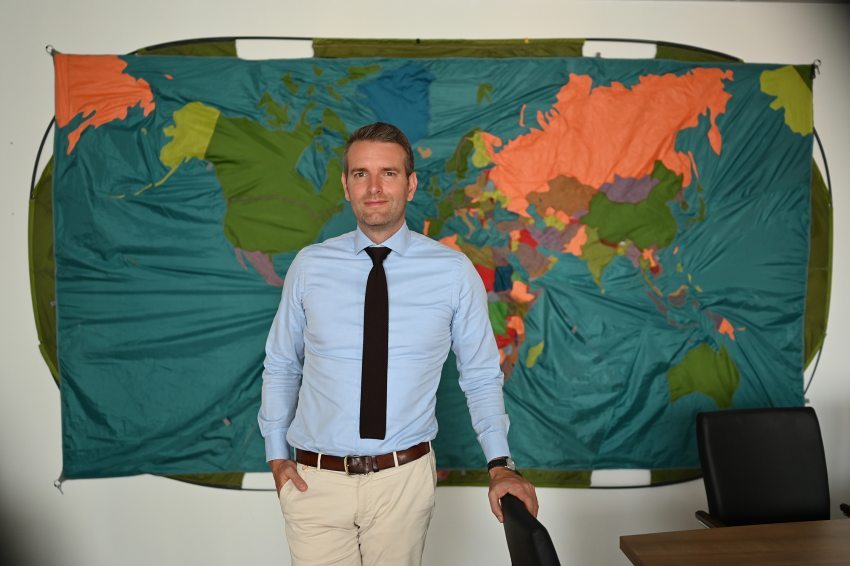
There are scientists who want to prevent climate catastrophe by reducing fertility rates, and more and more people are listening. A few years ago, Prince Harry and his wife told the press that they would not have more than two children for climate protection reasons. You have three children, don't you think that your family's ecological footprint is too much for the environment?
I don't think so. I think it is important that we have someone to whom we can bequeath this world, and Hungary in it. The most important thing is to shape attitudes and raise awareness. I see in my own children that they have a natural curiosity and a need to protect beauty.
If this goes on, will there be a habitable planet to leave behind? How big is the problem, how radical are the decisions that need to be taken?
The fact that this problem is getting closer to any one of us indicates the urgency of it. Think of the forest fires in Greece, or the major floods in Germany and Belgium that we could never have imagined before. Extreme weather conditions have also appeared in Hungary. Climate change is a challenge, but Hungary and Europe as a whole have made great strides in identifying the problem, and certain programmes have been launched.
What are the goals?
We want to be a climate-neutral country by 2050. The aim is to reduce greenhouse gas emissions to the level that is needed or expected from us.
What is the biggest challenge in this?
We need to move towards sustainability without raising prices, and while maintaining the competitiveness of the industry. There could be solutions that would suddenly reduce carbon emissions, but they would have consequences such as no electricity at the socket. I don't think anyone would want that. That is why it is important to move forward in a well-thought-out way, to be aware of the possible consequences of measures, and to be prepared to deal with them.
To achieve this, we have launched an online social dialogue to seek the views of the Hungarian people on all these issues.
How does the circular economy model fit into this strategy?
The essence of the linear economic model is that the product is produced, used and then discarded. This process is most extreme in the case of disposable plastics, where the period of use is often only a few seconds, after which the product ends up in landfills. The circular economy model aims to break this trend and try to recycle as much of the valuable material found in waste back into the economy as possible.
So waste can be a resource?
Waste is now seen as a secondary raw material. I think this is important from a national economic and national strategic point of view, because this raw material is already here in Hungary, so it doesn't have to be imported at high cost. Rare earth metals are a good example of this. It became apparent during the pandemic too, that global supply chains can easily be disrupted, but if the raw material is already here in the waste, it can also help our self-sufficiency.
Which countries are good examples to look at?
Western Europe is a little ahead of us in this, but Hungary is not lagging behind at regional level. Fifty per cent of municipal waste ends up in landfills here, compared to eighty per cent in Romania, for example.
Currently we are working to reduce this fifty percent to ten percent by 2035. The legal basis for this is already in place and we will set up a new waste management system from 2023.
What is the basis of the new system?
There will be uniform standards for collecting and sorting waste across the country. Now it is up to the municipalities, which form associations to deal with this issue in different ways in different regions. As a result, a lot of recycling capacity remains unused, and there is currently not enough secondary raw material of sufficient quality, even though it is being produced in the country. We want to address this.
Do operators receive support for innovation in substitute products? This could also be a cornerstone of the model change.
It is up to the market to define the substitutes, and all we can do is open up support frameworks for companies. We have launched a ten billion forint support programme to help finance this technology shift, for example for those stakeholders whose portfolio is largely made up of disposable plastics.
Hungary has also pledged that by 2030, ninety per cent of its electricity production will be carbon-free. To this end, renewable capacity would be tripled. What is Hungary's potential?
The achievement of this objective rests on two pillars. One is nuclear energy, which is carbon-free, and the Paks II project is also about maintaining current capacity. The other is renewable energy. In Hungary, like hydroelectricity, wind energy is limited, and where there is potential, there are already wind turbines. However, the sun shines a lot, so we believe primarily in solar panels and solar energy.
Today, solar panels in Hungary produce more energy than the capacity of the Paks nuclear power plant.
Biomass is also a good option, but it cannot produce energy on the scale of solar panels. There is also potential for geothermal energy, which could play a role in district heating.
Greening is a nice thing, but affordability is an important factor for the population. If everyone in Putnok, Kazincbarcika and Sajószentpéter had enough money to live with green solutions, no one would heat with trash. How can innovative solutions be made widely available?
Addressing this requires a comprehensive approach. The residential solar tender aims precisely to make renewable energy sources accessible to the most vulnerable. By installing solar panels in combination with heating upgrades, families can generate their own energy - and store it using a battery - which will greatly reduce their costs.
What is the role of society in change and what is the role of traders?
One of the key debates about the Brussels plans is precisely who will finance the switchover. We are saying that there are companies that use polluting technology, so they should bear the cost, not the families, because it would be a big burden for them. In addition, of course, a change in public attitudes is also important, and I am optimistic about that. I see that the new generation is now aware, and parents are often convinced or informed by their children about the need for a green lifestyle.
How do you pass this approach on to your children?
We often go out into nature and unfortunately we have found illegal waste several times, which has also disturbed the children. We downloaded the HulladékRadar (WasteRadar) app to our phones- which I recommend to everyone - took a picture of the pile and reported it. They were delighted when the next time the rubbish pile was no longer there.
Many people underestimate it, but small things like turning off the electricity or turning off the water are important. They have grown up with it, so they don't have to pay attention to it.
Composting is also useful and simple. In our gardens, we can just fit a small composter into which we can put our kitchen waste, and they will be happy to see that in time it will become soil and humus.
How can we protect the environment through our shopping habits?
It is worth knowing where the product comes from. I'm a big believer in eating locally grown fruit and vegetables, and since there is farming in my family we produce a lot of things at home. Obviously in the capital it's a bit harder to buy locally grown food, but fortunately there are more and more options.
